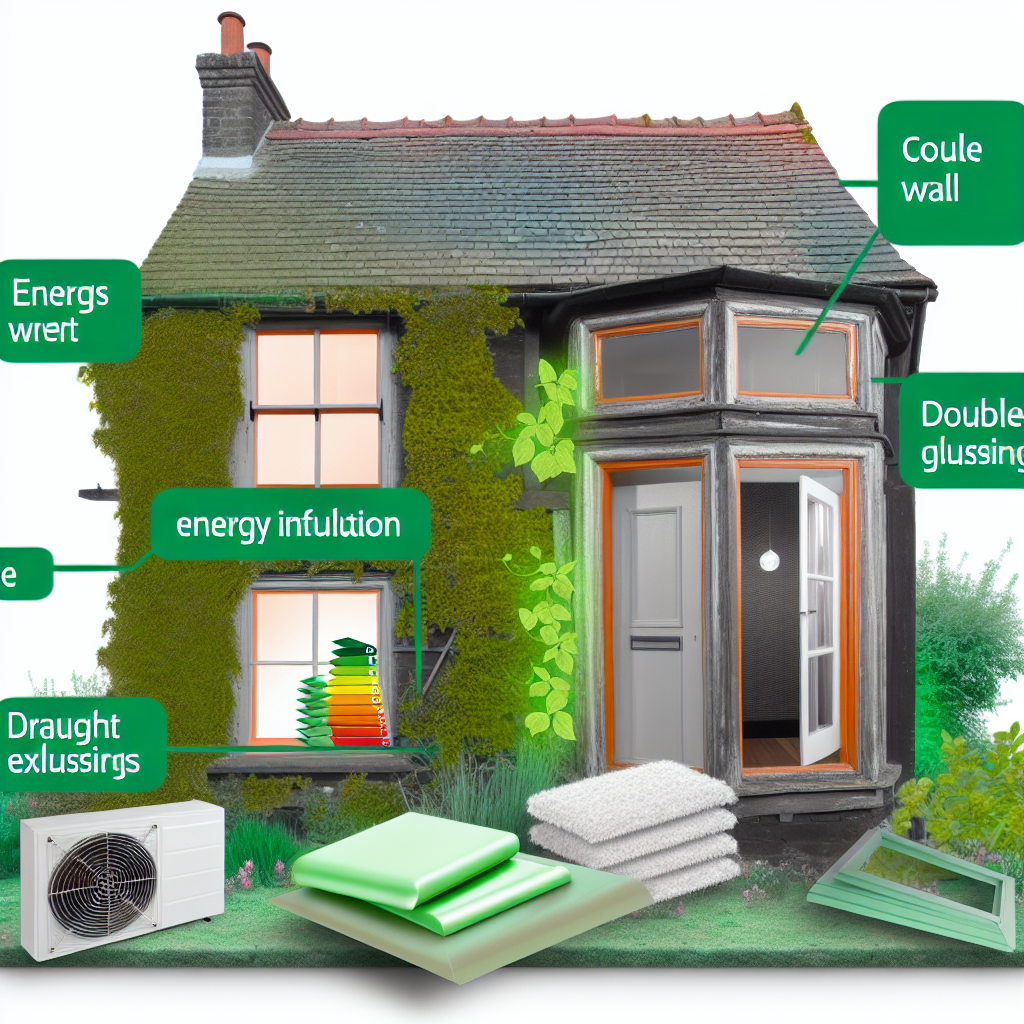Published: Mar 16, 2025

Older homes have a unique charm and character, but they often come with challenges when it comes to energy efficiency. Drafty windows, inadequate insulation, and outdated HVAC systems are common issues that can lead to higher energy bills and discomfort. However, with the right strategies and upgrades, you can improve the energy efficiency of your older home while maintaining its historic appeal.
One of the most significant sources of energy loss in older homes is air leakage. Gaps and cracks around windows, doors, and other openings allow hot or cold air to escape, forcing your HVAC system to work harder to maintain a comfortable temperature. Seal these air leaks with caulk, weatherstripping, or expanding foam to prevent energy wastage and reduce your heating and cooling costs.
Inadequate insulation is another common issue in older homes, especially those built before energy efficiency standards were established. Adding insulation to your attic, walls, and floors can help prevent heat transfer, keeping your home more comfortable year-round. Consider installing energy-efficient insulation materials like spray foam or cellulose to maximize the insulation's effectiveness.
Old, single-pane windows are notorious for their poor insulation properties. Replace them with energy-efficient windows that feature multiple panes, low-E coatings, and insulated frames to reduce heat transfer and improve comfort. Energy-efficient windows can also help block outside noise and enhance the overall energy efficiency of your home.
If your older home still relies on an outdated HVAC system, it may be time for an upgrade. Newer, energy-efficient models consume less energy while providing better heating and cooling performance. Regular maintenance, such as cleaning or replacing air filters and scheduling professional tune-ups, can also improve your HVAC system's efficiency and extend its lifespan.
A programmable thermostat allows you to set different temperature settings for various times of the day, ensuring that your HVAC system operates efficiently when needed. By programming your thermostat to automatically adjust the temperature when you're away or asleep, you can save energy without sacrificing comfort. Smart thermostats take it a step further by learning your preferences and optimizing your home's energy usage.
To further reduce your home's energy consumption, consider incorporating renewable energy sources like solar panels or geothermal systems. While the initial investment may be higher, renewable energy can significantly lower your utility bills in the long run and minimize your home's carbon footprint. Many older homes can be retrofitted with renewable energy solutions to enhance their sustainability.
If you're unsure where to start with improving your older home's energy efficiency, consider scheduling an energy audit. A professional auditor can identify areas of energy loss in your home and provide recommendations for upgrades or improvements. By understanding your home's specific energy needs, you can prioritize cost-effective upgrades that yield the greatest energy savings.
Improving the energy efficiency of older homes requires a combination of strategic upgrades, maintenance practices, and lifestyle adjustments. By addressing air leaks, upgrading insulation and windows, maintaining your HVAC system, utilizing programmable thermostats, exploring renewable energy options, and scheduling an energy audit, you can enhance your home's comfort, reduce your energy bills, and contribute to a more sustainable environment. With these tips, you can transform your older home into an energy-efficient and cozy living space.
**

Our expert technicians are ready to assist you 24/7!
Contact Us Today!Read our latest articles for helpful information about heating, cooling, and air quality.
Regular HVAC maintenance is essential for improving energy efficiency, extending the lifespan of your system, enhancing...
Read MoreImplement these 10 tips to enhance the air quality in your home, promoting a healthier living environment for you and y...
Read MoreRegular seasonal HVAC maintenance is essential for maximizing system efficiency, ensuring indoor air quality, preventing...
Read MoreSmart thermostats offer energy savings, convenience, learning capabilities, and integration with smart home systems, mak...
Read More